Are you one of the 301 million people worldwide living with anxiety, desperately searching for relief that doesn’t come with a prescription bottle? You’re not alone in this struggle. Recent global health data reveals that anxiety disorders affect 4.05% of the world’s population, with rates increasing by 25% during the COVID-19 pandemic alone [1,2]. The overwhelming feelings of worry, racing thoughts, and physical symptoms can make every day feel like an uphill battle.
But here’s the empowering truth: you have more control over your anxiety than you might realize. While pharmaceutical interventions have their place, groundbreaking research shows that exercise is 1.5 times more effective than medication for treating mild-to-moderate anxiety [3]. The natural remedies and techniques in this comprehensive guide can provide significant relief, often working faster and more sustainably than traditional treatments.
This isn’t just another list of feel-good suggestions – it’s a science-backed roadmap to reclaiming your peace of mind. You’ll discover evidence-based natural solutions that address anxiety at its root, learn practical techniques you can implement immediately, and understand exactly why these approaches work so effectively. Your journey from anxious to empowered starts here.
The Hidden Reality: Why Your Anxiety Feels So Overwhelming
Understanding the scope of the modern anxiety epidemic
You’re experiencing something that millions face daily, and the numbers tell a sobering story. Current statistics reveal that 19.1% of U.S. adults experience anxiety disorders each year, with women being 1.6 times more likely to be affected than men [4]. The global prevalence has steadily climbed from 3.7% to 4.4% between 1990 and 2021, representing one of the most significant mental health challenges of our time [1].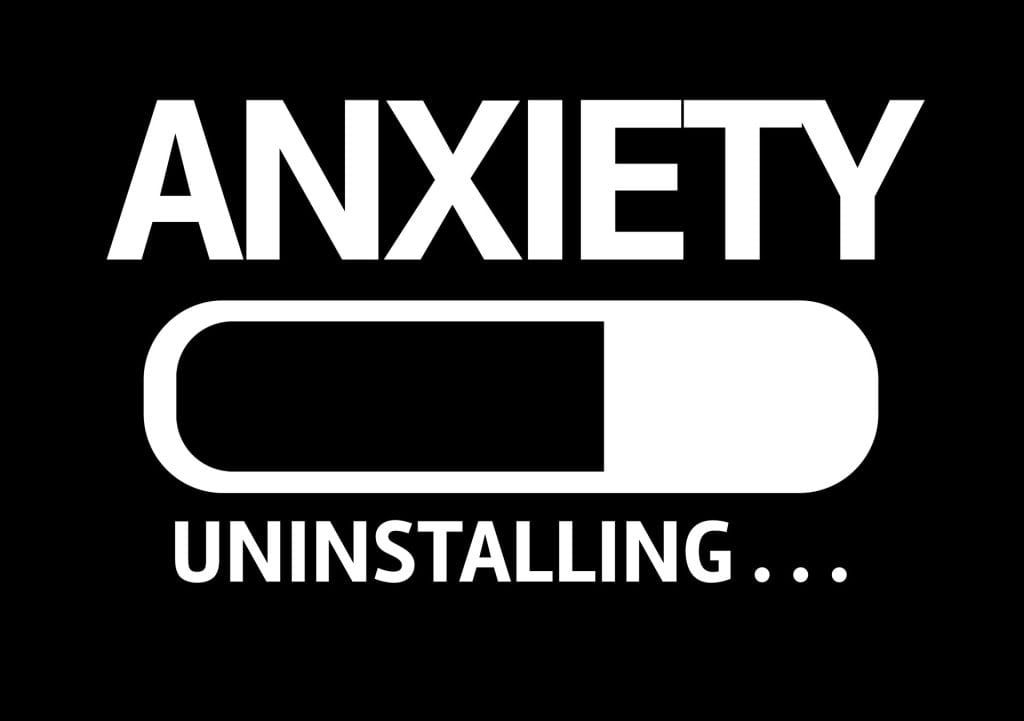
Your anxiety symptoms aren’t just “in your head” – they represent real physiological responses that can include:
- Racing heart and rapid breathing
- Muscle tension and headaches
- Digestive issues and sleep disruption
- Difficulty concentrating and memory problems
- Overwhelming worry about future events
The cascading effects that make everything worse
When anxiety takes hold, it creates a vicious cycle that feeds on itself. Your brain’s amygdala, the fear center, becomes hyperactive while your prefrontal cortex – responsible for rational thinking – gets suppressed. This neurological imbalance explains why logical reasoning feels impossible during anxious episodes and why you might feel trapped in spiraling thoughts.
The physical toll compounds the psychological distress. Chronic anxiety elevates cortisol levels, weakens immune function, and increases inflammation throughout your body. Research shows that people with anxiety disorders have a 40% higher risk of developing cardiovascular disease [5]. This isn’t meant to increase your worry – it’s to help you understand that addressing anxiety isn’t just about feeling better emotionally; it’s about protecting your overall health.
Why traditional approaches often fall short
You may have tried conventional treatments that left you frustrated. While anti-anxiety medications can provide relief, they often come with side effects including drowsiness, dependency concerns, and reduced effectiveness over time. Many people report feeling disconnected from their emotions or experiencing withdrawal symptoms when attempting to reduce medication use.
Talk therapy, while valuable, can take months or years to show significant results. Meanwhile, your anxiety continues to impact your daily life, relationships, and opportunities. This is where natural remedies offer a compelling alternative – they often work more quickly, have fewer side effects, and actually strengthen your body’s resilience rather than masking symptoms.
Glam Dust
Radiant Skin – Luscious Hair – Pristine Nails
Vitamin Shots
The ultimate brain and body supplements
Vitamin Sprinkles
The ultimate brain and body supplements
The Science-Backed Solution: Natural Remedies That Actually Work
Exercise: Your most powerful natural anxiety fighter
Physical activity isn’t just good for your body – it’s transformative for your anxious mind. A comprehensive meta-analysis of 97 reviews involving over 128,000 participants found that exercise interventions significantly reduce symptoms of depression, anxiety, and psychological distress [3]. The research is so compelling that experts now recommend exercise as a first-line treatment for anxiety disorders.
Here’s exactly how exercise combats anxiety:
- Releases endorphins – natural mood elevators that create feelings of well-being
- Reduces cortisol levels – lowering your body’s stress response
- Increases BDNF (brain-derived neurotrophic factor) – promoting new neural connections
- Provides immediate distraction – breaking the cycle of anxious thoughts
The most effective exercise strategies for anxiety:
- High-intensity workouts show greater anxiety reduction than low-intensity activities
- Exercise sessions of 12 weeks or shorter are most effective for mental health improvements
- Any movement counts – walking, dancing, swimming, or yoga all provide benefits
- Consistency matters more than intensity – 20-30 minutes of daily activity beats sporadic intense workouts
Meditation and mindfulness: Rewiring your anxious brain
Mindfulness-based interventions represent one of the most researched natural anxiety treatments. A groundbreaking 2023 study found that 8 weeks of mindfulness-based stress reduction (MBSR) was as effective as the prescription antidepressant Lexapro for treating anxiety disorders [6]. This landmark research validates what millions of practitioners have experienced firsthand.
Brain imaging studies reveal exactly how meditation transforms anxiety:
- Reduces amygdala reactivity – calming your brain’s alarm system
- Increases prefrontal cortex activity – strengthening rational thinking
- Improves connectivity between brain regions – enhancing emotional regulation
- Decreases default mode network activity – reducing rumination and worry
Getting started with meditation for anxiety:
- Begin with just 5-10 minutes daily – consistency builds the foundation
- Use guided meditations – apps like Headspace or Calm provide structure
- Focus on breath awareness – simply noticing your breathing without changing it
- Practice during calm moments – building the skill before you need it most

Herbal remedies: Nature’s pharmacy for anxiety relief
Certain herbs have demonstrated remarkable anti-anxiety properties in clinical trials. Unlike pharmaceutical medications, these natural remedies often provide relief without significant side effects or dependency concerns. However, it’s crucial to consult with healthcare providers before starting any herbal regimen, especially if you’re taking other medications.
Ashwagandha (Withania somnifera):
- Reduces cortisol levels by up to 27.9% in clinical studies [7]
- Recommended dosage: 300-600mg daily of standardized extract
- Timeline: Effects often noticed within 2-4 weeks of consistent use
- Best for: Chronic stress, generalized anxiety, and sleep-related anxiety
Chamomile (Matricaria chamomilla):
- Significantly reduces GAD symptoms compared to placebo in multiple studies [8]
- Contains apigenin – a compound that binds to brain receptors promoting relaxation
- Dosage: 1,500mg daily or 3-4 cups of chamomile tea
- Best for: Generalized anxiety disorder and evening relaxation
Valerian Root (Valeriana officinalis):
- Increases GABA levels in the brain, promoting natural calm [9]
- Improves sleep quality without morning grogginess
- Dosage: 300-600mg extract taken 1-2 hours before bedtime
- Best for: Sleep-related anxiety and nervous tension
Breathing techniques: Instant anxiety relief at your fingertips
Controlled breathing exercises offer immediate anxiety relief by activating your parasympathetic nervous system – your body’s natural relaxation response. Research shows that specific breathing patterns can reduce anxiety symptoms within minutes and provide long-term benefits with regular practice [10].

The 4-7-8 Breathing Technique: This powerful method, based on ancient pranayama practices, can reduce anxiety and promote sleep [11].
How to practice:
- Exhale completely through your mouth, making a “whoosh” sound
- Inhale silently through your nose for 4 counts
- Hold your breath for 7 counts
- Exhale through your mouth for 8 counts, making the “whoosh” sound
- Repeat 3-4 cycles, practicing twice daily for best results
Box Breathing (4-4-4-4): Used by Navy SEALs and emergency responders, this technique provides rapid stress relief [12].
Practice steps:
- Inhale for 4 counts
- Hold for 4 counts
- Exhale for 4 counts
- Hold empty for 4 counts
- Repeat 5-10 cycles as needed
Implementation Guide: Your 30-Day safe Natural Anxiety Relief Plan
Week 1: Foundation building
Your first week focuses on establishing sustainable habits that will form the foundation of your anxiety management toolkit.
Daily morning routine (15 minutes):
- 5 minutes of gentle stretching or yoga poses
- 5 minutes of breathing exercises (start with 4-7-8 technique)
- 5 minutes of intention setting – identify three things you’re grateful for
Physical activity commitment:
- Choose one form of movement you genuinely enjoy
- Start with 20 minutes daily – walking counts!
- Schedule it like an important appointment – consistency is key
Evening wind-down (20 minutes):
- 10 minutes of chamomile tea and relaxation
- 5 minutes of journaling – write down three good things from your day
- 5 minutes of gentle breathing exercises before bed
Week 2: Adding herbal support
Now that you’ve established basic routines, introduce targeted herbal remedies.
Morning additions:
- 300-600mg of ashwagandha with breakfast (consult your healthcare provider first)
- Continue your established movement and breathing practices
Midday support:
- Chamomile tea break – replace one cup of coffee with chamomile
- 5-minute breathing break during lunch
Evening enhancement:
- Valerian root supplement 1-2 hours before bed (if approved by your healthcare provider)
- Extended relaxation time – increase to 30 minutes total
Week 3: Mindfulness integration
Expand your practice to include formal mindfulness meditation.
Enhanced morning routine (25 minutes):
- 10 minutes of guided meditation using an app or online resource
- 10 minutes of mindful movement – yoga, walking, or stretching
- 5 minutes of intention setting and gratitude practice
Workday mindfulness:
- Three 2-minute breathing breaks throughout the day
- Mindful eating for at least one meal daily
- Evening meditation – 10-15 minutes before your wind-down routine
Week 4: Optimization and integration
Fine-tune your routine based on what’s working best for you.
Assess and adjust:
- Which techniques provide the most relief? Focus more energy here
- What timing works best? Adjust schedules to fit your lifestyle
- How is your sleep quality? Modify evening routines as needed
Advanced practices:
- Increase meditation duration to 15-20 minutes if comfortable
- Try different breathing techniques – alternate nostril breathing or extended exhales
- Explore nature-based activities – outdoor exercise amplifies benefits
Common Mistakes and How to Avoid Them
Mistake 1: Expecting instant miracles
Natural remedies work differently than pharmaceutical interventions. While some techniques like breathing exercises can provide immediate relief, building long-term resilience takes consistency over time. Research shows that most people notice significant improvements after 4-6 weeks of regular practice [13].
The solution: Focus on the process rather than outcomes. Celebrate small wins like completing your daily routine rather than waiting for anxiety to completely disappear.
Mistake 2: Trying everything at once
Overwhelming yourself with too many new practices can actually increase anxiety. It’s tempting to implement every technique simultaneously, but this approach often leads to burnout and inconsistency.
The solution: Master one technique before adding another. Start with breathing exercises, then gradually incorporate meditation, herbal remedies, and advanced practices.
Mistake 3: Inconsistent practice
Natural anxiety management requires regularity to build lasting benefits. Sporadic practice provides minimal results compared to consistent daily engagement with these techniques.
The solution: Start smaller than you think you need. It’s better to do 5 minutes daily than 30 minutes once a week. Build the habit first, then increase duration.
Mistake 4: Ignoring professional support when needed
While natural remedies are powerful, severe anxiety may require professional intervention. Warning signs that you need additional support include:
- Panic attacks that interfere with daily activities
- Avoiding important life situations due to anxiety
- Physical symptoms that concern you
- Thoughts of self-harm or substance abuse
The solution: View natural remedies as complementary to, not replacements for, professional care when necessary. Many therapists integrate these techniques into treatment plans.
Special Circumstances: Tailoring Your Approach
Anxiety in the workplace
Professional environments present unique challenges for anxiety management. You need techniques that are discreet, quick, and effective without drawing attention.
Desk-based breathing techniques:
- Box breathing – can be done silently at your desk
- Extended exhales – breathe in for 4, out for 8 counts
- Mindful moments – 30-second awareness breaks between tasks
Physical strategies:
- Take walking meetings when possible
- Use stairs instead of elevators for movement breaks
- Practice progressive muscle relaxation during breaks
Anxiety during social situations
Social anxiety requires specific strategies that you can implement before, during, and after social interactions.
Pre-event preparation:
- 30 minutes of exercise before social events when possible
- Grounding techniques – name 5 things you can see, 4 you can hear, 3 you can touch
- Positive visualization – imagine successful, enjoyable interactions
During events:
- Bathroom breathing breaks – use the 4-7-8 technique
- Focus on others – ask questions and listen actively
- Remember your values – why is this interaction important to you?
Travel-related anxiety
Travel can trigger anxiety through unfamiliar environments and lack of control. Preparation and portable techniques are essential.
Portable anxiety toolkit:
- Downloaded meditation apps for offline use
- Essential oil rollers – lavender for calming
- Herbal teas in travel packets – chamomile or passionflower
- Written breathing exercise instructions for easy reference
Sleep anxiety
Anxiety often peaks at bedtime when your mind has space to worry. Sleep-specific strategies help break the cycle of anxiety-induced insomnia.

Pre-sleep routine (60 minutes before bed):
- No screens – blue light disrupts your natural rhythm
- Valerian root or chamomile tea (with healthcare provider approval)
- 4-7-8 breathing – specifically designed to promote sleep
- Progressive muscle relaxation – systematically tense and release muscle groups
Glam Dust
Radiant Skin – Luscious Hair – Pristine Nails
Vitamin Shots
The ultimate brain and body supplements
Vitamin Sprinkles
The ultimate brain and body supplements
Cost Analysis: Natural vs. Traditional Approaches
Initial investment in natural remedies
Natural anxiety management requires minimal upfront costs compared to ongoing pharmaceutical expenses.
One-time costs:
- Meditation app subscription: $5-15/month (many free options available)
- Yoga mat: $20-60 (optional but helpful)
- Essential oils: $30-50 starter set
- Books or educational resources: $20-40
Monthly ongoing costs:
- Herbal supplements: $50-110/month depending on selections
- Herbal teas: $10-20/month
- Optional gym membership: $20-100/month (many free exercise options)
Total monthly investment: $90-265, with many effective options on the lower end.
Comparison to traditional treatment costs
Conventional anxiety treatment involves significant ongoing expenses:
- Prescription medications: $50-300/month without insurance
- Therapy sessions: $100-200 per session (weekly = $400-800/month)
- Doctor visits: $200-400 per visit
- Insurance copays and deductibles: Varies widely
Annual traditional treatment costs: $6,000-15,000 for comprehensive care.
The value proposition of natural approaches
Beyond cost savings, natural remedies offer additional value:
- No side effects from pharmaceutical interventions
- Skills you own forever – breathing and meditation techniques never expire
- Improved overall health – exercise and stress reduction benefit your entire body
- Increased self-efficacy – learning to manage anxiety builds confidence
Maximizing your investment
Get the most value from natural approaches with these strategies:
- Start with free resources – YouTube, library books, and free apps
- Buy supplements in bulk – often 20-30% cheaper
- Choose multi-purpose items – yoga mats for exercise and meditation
- Focus on techniques with the highest research support for your specific needs
Quality and Safety: Choosing Effective Natural Remedies
Evaluating herbal supplement quality
Not all supplements are created equal. The FDA doesn’t regulate supplements as strictly as medications, making quality verification essential for safety and effectiveness.
Look for these quality indicators:
- Third-party testing – USP, NSF, or ConsumerLab certification
- Standardized extracts – ensure consistent active ingredient levels
- GMP (Good Manufacturing Practice) certification – indicates proper production standards
- Clear labeling – exact amounts of active ingredients listed
Red flags to avoid:
- Proprietary blends without individual ingredient amounts
- Unrealistic claims – “cure” or “miracle” language
- No contact information for the manufacturer
- Prices significantly below market average – may indicate poor quality
Herb-drug interactions to know
Natural doesn’t always mean safe, especially when combined with medications. Always consult healthcare providers before starting herbal remedies.
Important interactions:
- St. John’s Wort – can reduce effectiveness of many medications including birth control and antidepressants
- Valerian – may increase sedative effects of sleep medications or alcohol
- Ashwagandha – can interact with diabetes and thyroid medications
- Chamomile – may increase bleeding risk when combined with blood thinners

Starting safely with herbal remedies
Minimize risks with proper introduction protocols:
- Start with lower doses – begin at 25-50% of recommended amounts
- Introduce one herb at a time – easier to identify any adverse reactions
- Monitor for side effects – digestive upset, headaches, or skin reactions
- Keep a journal – track doses, timing, and effects
When to seek professional guidance
Certain situations require professional oversight:
- Taking prescription medications – potential interactions need evaluation
- Pregnancy or breastfeeding – many herbs aren’t recommended during these times
- Chronic health conditions – diabetes, heart disease, or autoimmune disorders
- Severe anxiety symptoms – professional assessment may reveal underlying conditions
Beyond Individual Remedies: Creating Your Anxiety-Resilient Lifestyle
The synergistic effect of combined approaches
Natural anxiety management works best when techniques complement each other. Research shows that combining multiple evidence-based approaches creates exponential benefits rather than simple addition [14].
Powerful combinations:
- Exercise + meditation – enhances neuroplasticity and stress resilience
- Breathing techniques + herbal support – addresses both acute and chronic anxiety
- Nature exposure + physical activity – amplifies mood-boosting effects
- Social connection + mindfulness – builds emotional resilience
Building long-term resilience
The goal isn’t just symptom management – it’s creating lasting changes that make you naturally more resilient to stress and anxiety.
Neuroplasticity principles:
- Consistency over intensity – regular practice literally rewires your brain
- Progressive challenge – gradually increase difficulty to build stronger neural pathways
- Multi-sensory engagement – combine movement, breathing, and mindfulness
- Emotional safety – practice during calm moments to strengthen positive associations
Environmental modifications for anxiety reduction
Your surroundings significantly impact your anxiety levels. Small environmental changes can reduce daily stress and support your natural remedy practices.
Home environment optimizations:
- Reduce clutter – visual chaos increases mental agitation
- Incorporate plants – improve air quality and provide natural calming effects
- Use soft lighting – harsh fluorescents can increase stress hormones
- Create a dedicated quiet space – even a corner works for meditation practice
Digital environment management:
- Curate social media feeds – unfollow accounts that increase anxiety
- Use blue light filters – especially 2 hours before bedtime
- Set notification boundaries – constant alerts maintain chronic stress
- Schedule “digital detox” periods – regular breaks from information overload
Natural Ways to Help Reduce Stress and Anxiety Symptoms
Managing stress levels and anxiety and stress is essential for maintaining optimal physical and mental health. Today, many people turn to natural remedies and herbal supplements to help reduce feelings of anxiety and symptoms of stress. Conditions like generalized anxiety disorder, chronic stress, and anxiety and insomnia affect millions, but tools such as meditation can help, deep breathing, and exercise can help improve the stress response and promote stress reduction. A growing body of systematic review and meta-analysis supports the use of herbal remedies like chamomile, lavender is safe, and herbal teas for their calming, sedative effect, helping individuals relieve stress and reduce anxiety symptoms naturally. Natural supplements and dietary supplements, especially those rich in vitamins and minerals, can aid in stress management and help lower the body’s cortisol level.
Foods can help address physical symptoms of daily stress, while natural remedies for anxiety may also help manage anxiety and support integrative health. As shown in many clinical trials and systematic reviews, supplements containing medicinal herbs may improve perceived stress levels and help reduce symptoms of chronic stress. If you’re feeling overwhelmed, always talk to a doctor or health professional, especially in primary care, to find the best ways to manage your health conditions. Whether you’re exploring cognitive behavioral therapy, herbal teas, or integrative approaches, these stress relievers may help you relax, help you manage, and ultimately help you feel better. Remember, even good stress can increase your stress levels over time, so take steps today to help build resilience and help you deal with stress naturally.
Advanced Techniques for Persistent Anxiety
Progressive muscle relaxation for physical tension
Anxiety often manifests as physical tension throughout your body. Progressive muscle relaxation systematically releases this tension while training your awareness of the difference between tension and relaxation [15].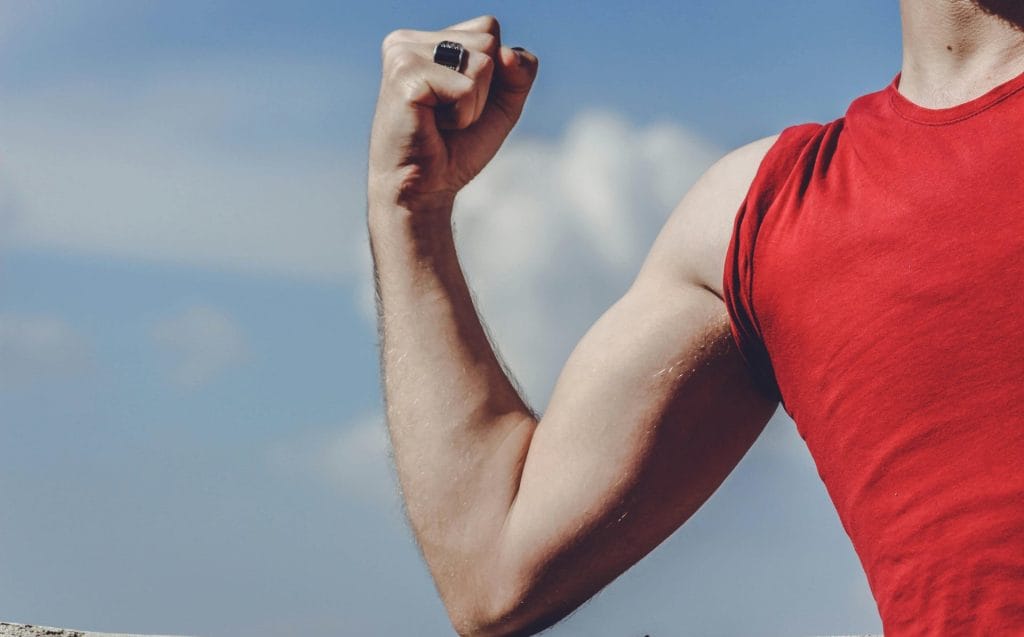
Full-body technique (15-20 minutes):
- Start with your toes – tense for 5 seconds, then release
- Move systematically upward – calves, thighs, glutes, abdomen
- Include arms and hands – make fists, tense arms, then release
- Finish with face and scalp – scrunch facial muscles, then completely relax
- End with full-body awareness – notice the contrast between tension and relaxation
Cognitive restructuring through mindfulness
Anxious thoughts often feel completely true and urgent. Mindfulness-based cognitive approaches help you observe thoughts without automatically believing them.
The RAIN technique:
- Recognize – Notice the anxious thought without judgment
- Allow – Let the thought exist without fighting or feeding it
- Investigate – Observe the physical sensations and emotions with curiosity
- Non-attachment – Remember that thoughts are temporary mental events, not facts
Energy-based practices
Traditional practices like yoga and tai chi combine movement, breathwork, and mindfulness for comprehensive anxiety relief.
Restorative yoga sequences for anxiety:
- Child’s pose – grounds nervous system and reduces overwhelm
- Legs up the wall – activates parasympathetic nervous system
- Supported fish pose – opens chest and improves breathing
- Corpse pose with weighted blanket – provides deep relaxation
Tai chi for anxiety:
- Slow, flowing movements reduce cortisol and improve mood
- Mindful attention breaks rumination cycles
- Social practice provides community support
- Accessible to all fitness levels – gentler than high-intensity exercise
Conclusion: Empower Yourself with Nature’s Healing Tools
Anxiety may feel overpowering, but the truth is, you’re not powerless. The natural world offers a vast, scientifically supported toolkit for managing and even transforming your anxiety—from the calming rhythm of breathwork to the resilience-building power of daily movement and the quiet strength of herbal remedies. Each small step you take, whether it’s sipping chamomile tea, practicing 4-7-8 breathing, or going for a brisk walk, rewires your brain and strengthens your emotional foundation. These remedies don’t just mask symptoms—they build a new way of living. Your healing doesn’t have to start tomorrow or next week—it can begin right now, with one conscious, empowered choice. You have everything you need to thrive within you—let nature guide the way forward.
Conclusion – Final Thoughts: Let Nature Help You Breathe Easier
Managing anxiety doesn’t have to involve complex treatments or strong medications. This guide has shown that natural, safe remedies—like ashwagandha, chamomile tea, magnesium, lavender, deep breathing, and regular movement—can gently bring your mind and body back into balance.
These remedies aren’t instant fixes, but they offer real, lasting support when used consistently. Start simple. Stay consistent. Trust your body’s ability to heal.
Because with the right natural tools, peace of mind is not just possible—it’s within reach.
Frequently Asked Questions
How quickly do natural remedies work for anxiety?
Timeline varies depending on the specific remedy and individual factors. Breathing exercises can provide immediate relief within 2-5 minutes, while herbal remedies typically show effects within 2-4 weeks of consistent use. Exercise benefits often emerge within 1-2 weeks, and meditation practice usually demonstrates noticeable improvements after 4-6 weeks of regular practice. The key is consistency – irregular use significantly delays results.
Can I use natural remedies if I’m already taking anxiety medication?
You should always consult with your healthcare provider before combining natural remedies with prescription medications. Many combinations are safe and beneficial, but certain herbs can interact with anti-anxiety medications. For example, St. John’s Wort can reduce the effectiveness of some antidepressants, while valerian might increase sedative effects. Your doctor can help create a safe, integrated approach that maximizes benefits while minimizing risks.
Which natural remedy is most effective for severe anxiety?
For severe anxiety, exercise shows the strongest research support, with studies demonstrating it’s 1.5 times more effective than medication for mild-to-moderate symptoms. However, severe anxiety often requires a multi-modal approach combining several evidence-based techniques. Professional guidance is essential for severe symptoms – natural remedies work best as part of a comprehensive treatment plan that may include therapy and, when necessary, medication.
Are there any side effects from natural anxiety remedies?
Natural remedies generally have fewer side effects than pharmaceutical options, but they’re not completely risk-free. Common mild side effects include:
- Digestive upset from herbal supplements when starting
- Drowsiness from valerian or chamomile
- Initial dizziness from breathing exercises (usually resolves with practice)
- Temporary increased anxiety when beginning meditation (as you become more aware of thoughts)
Serious side effects are rare but possible, especially with herbal supplements or if you have underlying health conditions.
How much does a natural anxiety management program cost?
Basic natural anxiety management can cost as little as $20-50 monthly for essential herbal teas and a meditation app subscription. A comprehensive program including quality supplements, yoga classes, and organic foods typically ranges from $100-200 monthly. This compares favorably to traditional treatment costs of $500-1,500 monthly for therapy and medication. Many effective techniques like breathing exercises, meditation, and walking are completely free.
Can children and teens use these natural anxiety remedies?
Many natural remedies are safe and effective for young people, but dosages and approaches need modification. Breathing exercises and mindfulness are excellent for children as young as 6-8 years old. Exercise is crucial for teen anxiety management and shows particularly strong benefits in this age group. Herbal remedies require careful consideration and professional guidance for anyone under 18, as dosing and safety profiles differ for developing bodies.
What if natural remedies don’t work for me?
Individual responses to natural remedies vary significantly. If one approach isn’t effective after 6-8 weeks of consistent practice, consider:
- Trying different techniques – what works varies by person and anxiety type
- Adjusting dosages or timing with professional guidance
- Combining multiple approaches – synergistic effects often overcome single-remedy limitations
- Evaluating underlying factors – sleep quality, nutrition, or hormonal issues may need addressing
- Seeking professional evaluation – persistent severe anxiety may require additional interventions
How do I know if my anxiety requires professional treatment?
Seek professional help if anxiety significantly interferes with your daily life. Warning signs include:
- Avoiding important activities due to anxiety (work, school, social events)
- Panic attacks that feel uncontrollable
- Physical symptoms like chest pain or difficulty breathing
- Sleep disruption lasting more than 2 weeks
- Relationship problems caused by anxiety
- Substance use to manage anxiety symptoms
- Thoughts of self-harm or hopelessness
Natural remedies can complement professional treatment but shouldn’t delay necessary care.
Can I use these techniques during a panic attack?
Breathing exercises are particularly effective during panic attacks, but technique matters. Avoid deep breathing during acute panic as it can worsen hyperventilation. Instead, focus on slowing your exhale – breathe in normally, then exhale for twice as long. The 4-7-8 technique works well once the initial panic subsides. Practice breathing exercises regularly when calm so the technique feels familiar during crisis moments.
Do natural remedies work as well as prescription medications?
Research shows mixed results depending on anxiety severity and individual factors. For mild-to-moderate anxiety, exercise performs as well as or better than many medications. Mindfulness-based interventions show comparable effectiveness to antidepressants in several clinical trials. However, severe anxiety disorders often benefit from medication, especially initially. The advantage of natural remedies is their additional health benefits and lower risk of dependency.
How long should I continue using natural anxiety remedies?
Unlike medications, most natural anxiety management techniques become more effective with long-term practice. Breathing exercises and meditation build lasting resilience that continues benefiting you for years. Herbal supplements can often be reduced or eliminated as other techniques become more effective. Exercise should be viewed as a lifelong practice for both mental and physical health. The goal is developing self-management skills that reduce reliance on any external interventions.
What’s the best natural remedy for anxiety-related insomnia?
The 4-7-8 breathing technique specifically targets sleep-related anxiety and shows strong anecdotal evidence for improving sleep onset. Valerian root demonstrates the strongest research support for anxiety-related sleep problems, with studies showing improved sleep quality without morning grogginess. Chamomile tea 30-60 minutes before bedtime provides gentle relaxation. Progressive muscle relaxation practiced in bed helps release physical tension that keeps anxious minds awake.
Can diet changes help with anxiety?
Nutrition significantly impacts anxiety levels, though dietary changes work best combined with other natural remedies. Key dietary strategies include:
- Reducing caffeine intake – especially after 2 PM
- Limiting processed foods and added sugars – these can cause blood sugar spikes that mimic anxiety
- Increasing omega-3 fatty acids – found in fish, walnuts, and flax seeds
- Supporting gut health with probiotics – emerging research shows strong gut-brain connections
- Staying hydrated – dehydration can exacerbate anxiety symptoms
Consider working with a nutritionist for personalized dietary approaches to anxiety management.
Are there specific natural remedies for different types of anxiety?
Different anxiety types often respond better to targeted approaches:
Generalized Anxiety Disorder (GAD):
- Ashwagandha and chamomile show specific research support
- Mindfulness meditation addresses chronic worry patterns
- Regular exercise routine builds overall resilience
Social Anxiety:
- Breathing exercises for immediate pre-event relief
- Progressive exposure combined with relaxation techniques
- L-theanine supplements may help with social performance anxiety
Panic Disorder:
- Box breathing during episodes
- Magnesium supplementation may reduce panic frequency
- Regular cardiovascular exercise improves panic attack recovery
Always consult healthcare providers for specific anxiety disorder management.
Glam Dust
Radiant Skin – Luscious Hair – Pristine Nails
Vitamin Shots
The ultimate brain and body supplements
Vitamin Sprinkles
The ultimate brain and body supplements
Your Path to Natural Anxiety Freedom Starts Today
You now have a comprehensive, science-backed roadmap to natural anxiety relief. The evidence is overwhelming: natural remedies aren’t just feel-good alternatives – they’re often more effective, sustainable, and health-promoting than conventional approaches. You’ve learned that exercise outperforms medication, meditation rivals pharmaceutical interventions, and simple breathing techniques can provide immediate relief.
Most importantly, you’ve discovered that anxiety doesn’t have to control your life. The techniques in this guide have helped millions of people reclaim their peace of mind, and they can work for you too. You don’t need perfect conditions, expensive equipment, or months of preparation to begin experiencing benefits.
Your immediate action steps:
- Choose one breathing technique and practice it for 5 minutes today
- Schedule 20 minutes of physical activity that you genuinely enjoy
- Select one herbal remedy to research and discuss with your healthcare provider
- Download a meditation app and commit to 5 minutes daily for one week
- Create a simple evening routine that signals your nervous system to relax
Remember: Progress, not perfection, is your goal. Some days will feel easier than others, and that’s completely normal. Each time you choose a natural anxiety management technique over worry or avoidance, you’re building stronger neural pathways that support lasting emotional resilience.
The most powerful truth about natural anxiety remedies is this: they don’t just treat symptoms – they build your capacity to thrive. As you develop these skills, you’ll find yourself not just managing anxiety, but experiencing greater confidence, better relationships, improved physical health, and a deeper sense of personal empowerment.
Your journey from anxious to empowered doesn’t require dramatic life changes. It begins with a single conscious breath, one mindful step, or a simple cup of chamomile tea. The tools for transformation are already within you – this guide simply shows you how to access and strengthen them.
Start today. Start small. Start with hope. Your anxiety-free future is not just possible – with these natural remedies, it’s inevitable.
References
[1] Santomauro, D. F., et al. (2021). Global prevalence and burden of depressive and anxiety disorders in 204 countries and territories in 2020 due to the COVID-19 pandemic. The Lancet, 398(10312), 1700-1712.
[2] World Health Organization. (2022). COVID-19 pandemic triggers 25% increase in prevalence of anxiety and depression worldwide. WHO Press Release.
[3] Singh, B., et al. (2023). Effectiveness of physical activity interventions for improving depression, anxiety and distress: an overview of systematic reviews. British Journal of Sports Medicine, 57(18), 1203-1209.
[4] National Institute of Mental Health. (2023). Any Anxiety Disorder. NIMH Statistics on Mental Health Disorders.
[5] National Alliance on Mental Illness. (2023). Mental Health By the Numbers. NAMI Statistical Report.
[6] Hoge, E. A., et al. (2023). Mindfulness-Based Stress Reduction vs Escitalopram for the Treatment of Adults With Anxiety Disorders: A Randomized Clinical Trial. JAMA Psychiatry, 80(1), 13-21.
[7] Lopresti, A. L., et al. (2019). A randomized, double-blind, placebo-controlled study of ashwagandha extract for reducing stress and anxiety. Journal of Clinical Psychiatry, 80(3), 18m12125.
[8] Amsterdam, J. D., et al. (2016). Long-term chamomile therapy of generalized anxiety disorder: A study protocol for a randomized, double-blind, placebo-controlled trial. Journal of Clinical Trials, 6(5), 278.
[9] Andreatini, R., et al. (2002). Effect of valepotriates (valerian extract) in generalized anxiety disorder: a randomized placebo-controlled pilot study. Phytotherapy Research, 16(7), 650-654.
[10] Balban, M. Y., et al. (2023). Brief structured respiration practices enhance mood and reduce physiological arousal. Cell Reports Medicine, 4(1), 100895.
[11] Aktaş, G. K., et al. (2022). The effect of deep breathing exercise and 4-7-8 breathing techniques applied to patients after bariatric surgery on anxiety and quality of life. Obesity Surgery, 33(1), 118-127.
[12] Norelli, S. K., et al. (2023). Relaxation techniques. StatPearls Publishing.
[13] Goyal, M., et al. (2014). Meditation programs for psychological stress and well-being: a systematic review and meta-analysis. JAMA Internal Medicine, 174(3), 357-368.
[14] Noetel, M., et al. (2024). Effect of exercise for depression: systematic review and network meta-analysis of randomised controlled trials. BMJ, 384, e075847.
[15] Bentley, T. G. K., et al. (2023). Breathing practices for stress and anxiety reduction: Conceptual framework of implementation guidelines based on a systematic review of the published literature. Brain Sciences, 13(12), 1612.

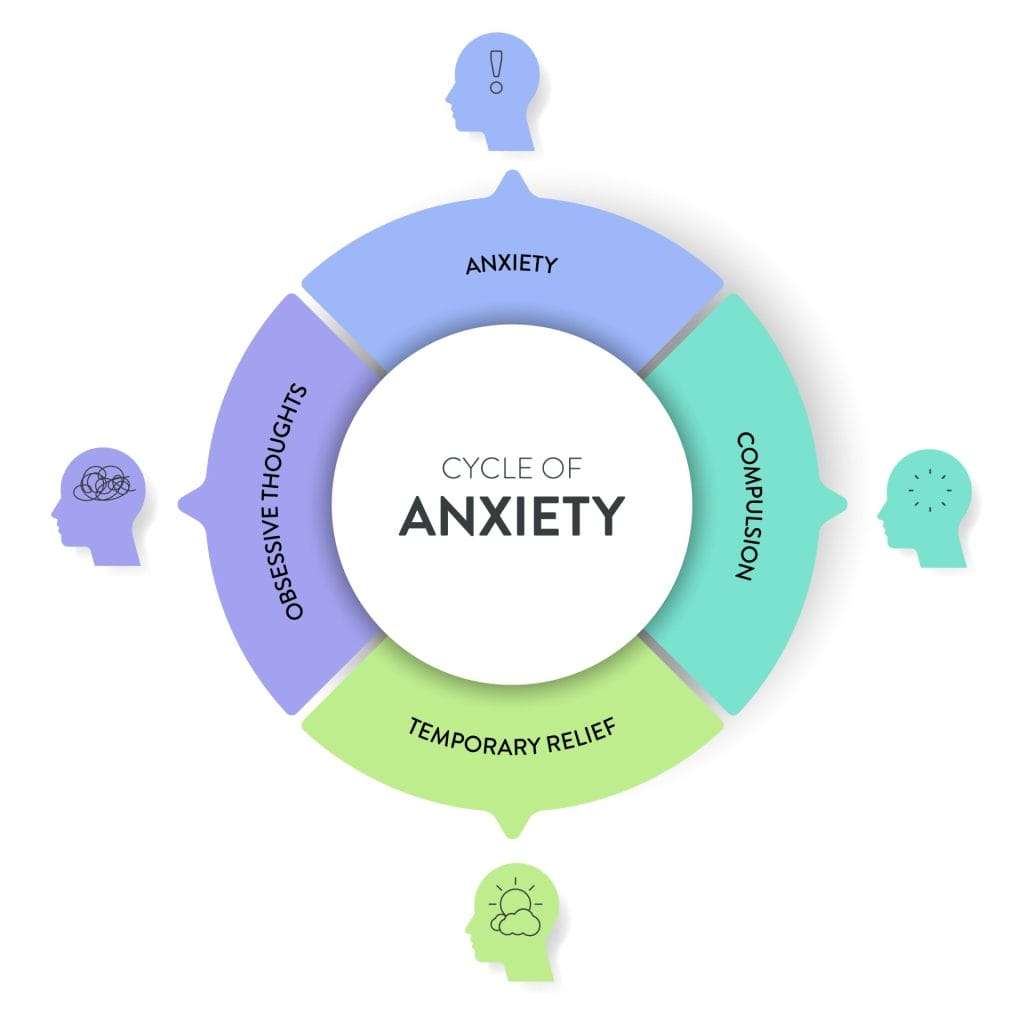
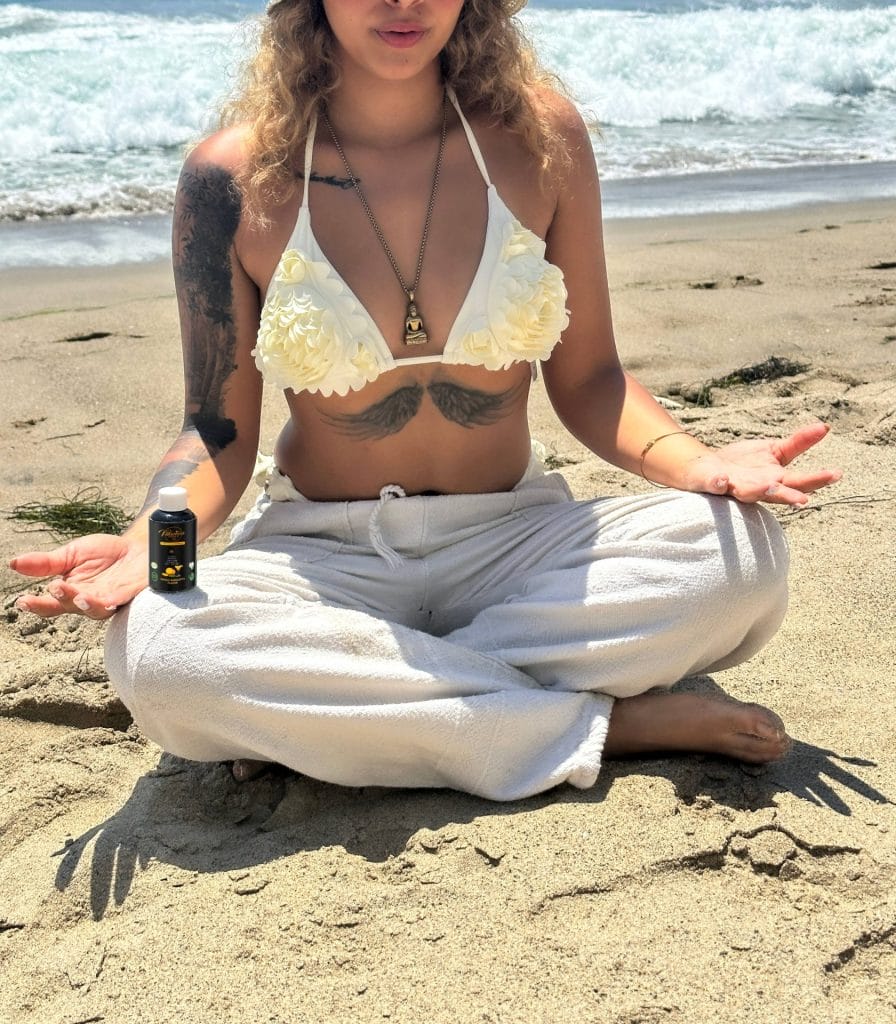
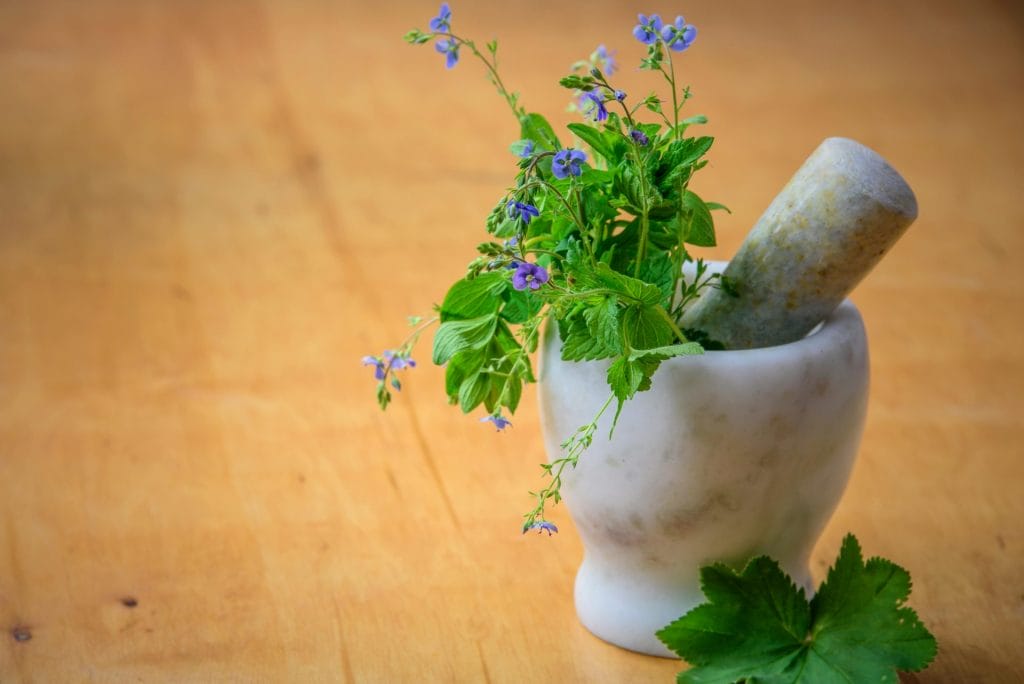
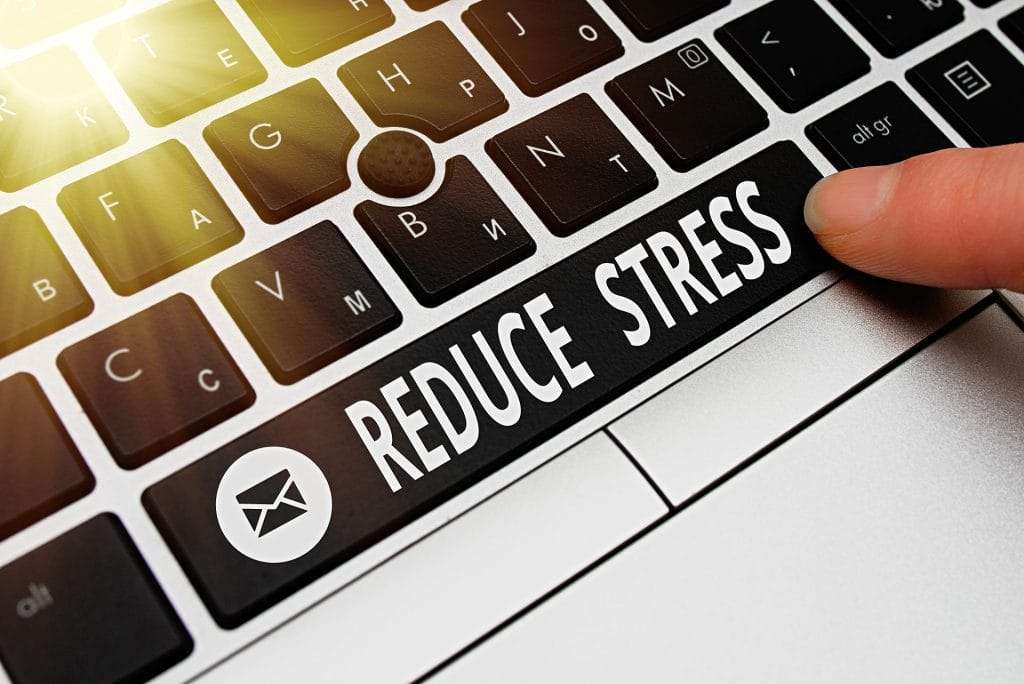
.png)
